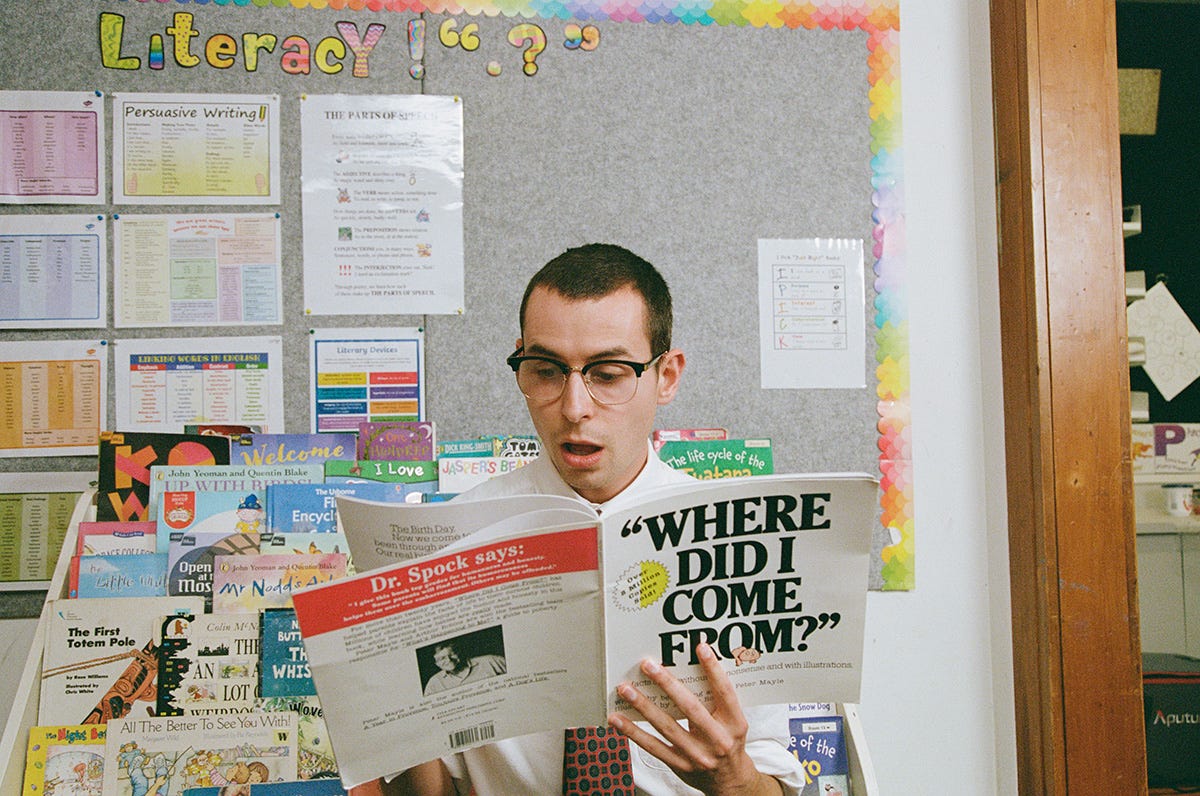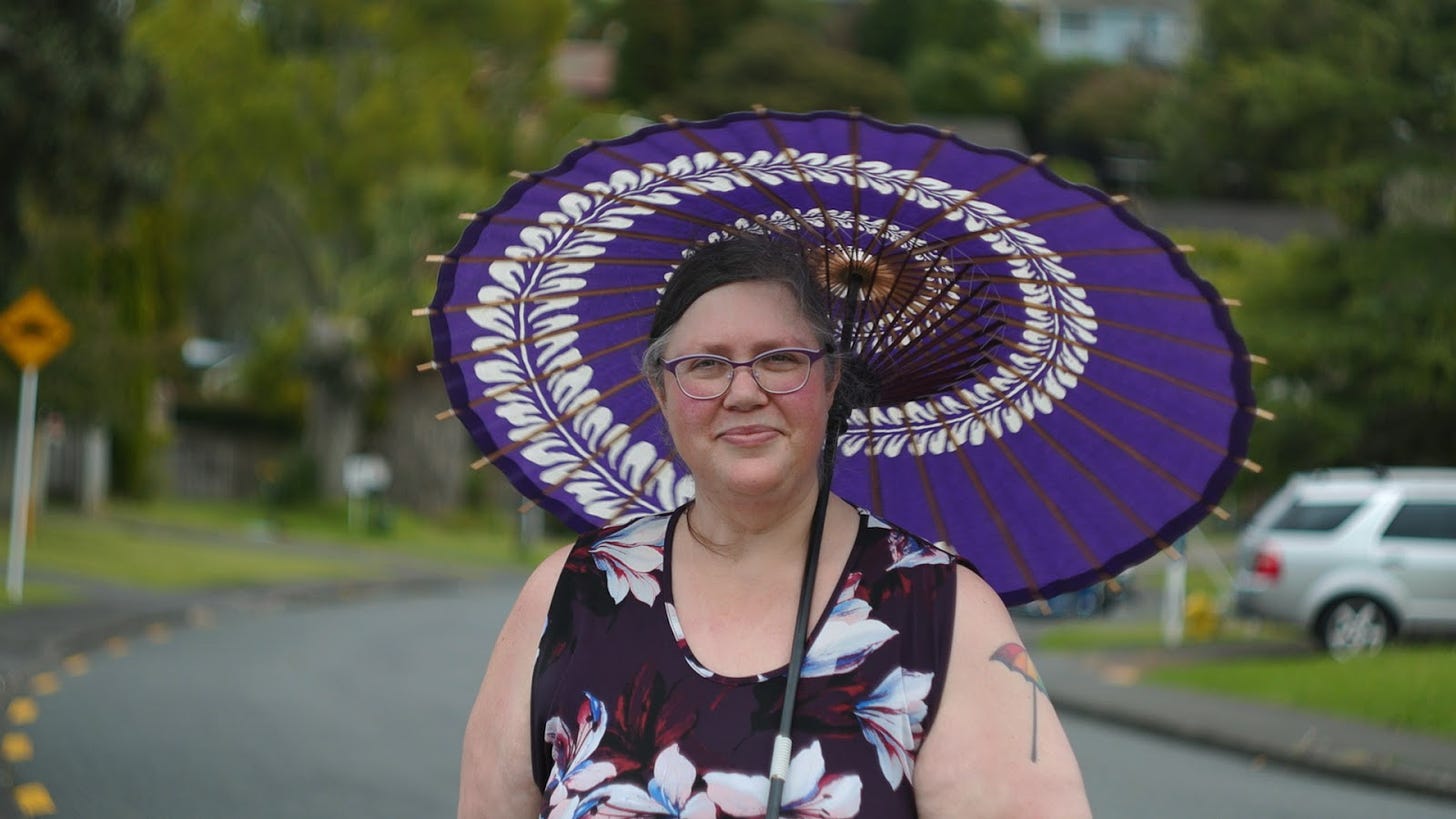Lessons for a straight dude from the LGBTTQIA+ communities
Head of Re: News, Simon Day, reflects on a year of learning at Queer Academy.
Last week I got to stand on stage and welcome the audience to the launch of Queer Academy, our latest Re: News documentary series. It is a special privilege of my role to be able to introduce and advocate for the work the Re: News whānau does.
But this project was especially important to me as Queer Academy is the first of our documentary series I’ve worked on from start to finish as the head of Re: News. And it’s had a massive impact on me.
Directed by Re: News journalist Liam van Eeden, each episode reveals a lesson that we can learn from LGBTTQIA+ communities. It is smart, hilarious, beautiful and educational. But most importantly it's a celebration of the diversity and joy of being queer.
It’s the newest part of a catalogue of content that has become an essential part of our work. This longer form storytelling, funded by NZ on Air, has given us a chance to dig deeper into the stories about what life is like in Aotearoa for young people. And it has also given the space to the extraordinary young storytellers at Re: News to flex their creativity and tell their stories in a way that is rarely seen in our media.
Watching Liam and the team work on this series has been really special. I’ll never forget the day the funding announcement landed in his inbox – his joy at having the opportunity to tell stories about the queer community in a way that he never saw as a young person growing up in rural New Zealand - filled our little corner of the TVNZ newsroom.
Over the next 12 months Liam carried the kaupapa with such care and commitment to his vision and the community. A vision that I realised had real application to me as a straight CIS dude. In its celebration of the rainbow community, Queer Academy was always about showing everyone how to find a better version of themselves.
It has really helped me become aware of the social lines that get drawn around our lives and how we can push back against them and in some cases refuse to accept them.
This idea resonated with me because of my family’s experience.
The first distincy memory I have of my life is at my uncle Stuart’s funeral in the early 90s after he died of AIDs. My aunt Libby and her partner Sara (whose death five years ago left a giant hole in our world) both had a definitive influence on my understanding of what a strong family looks like.
Watching the brave way my grandparents – who came from an era and background that was not ready to embrace sexual diversity – respond to the social judgement of having two gay children taught me about what love looks like.
Queer Academy has helped me to truly understand the lessons and find the language to explain what I had been taught by these people.
I remember sitting in our first meeting with the crew when Liam shared his initial outline for the series’ five episodes and starting to understand the way Rainbow communities get to celebrate living outside the boxes we are so often told we must stay inside. It made me wonder how social expectations had held me back from being the bravest version of myself.
It was while reviewing the first cut of episode five that I had a moment of clarity when I heard this idea captured perfectly.
In discussing why queer people are better at non-monogamy, relationship counsellor Dee Morgan says: “People who identify as queer… have had more practice questioning normative assumptions in our society.”
I didn’t realise that this is what I had been watching my aunt Libby do my whole life. Whether it was refusing to accept the homophobic way a bougie golf club was run or showing me how a community of friends – that are much closer to whānau – can support each other through heartbreaking loss. I now realise that because of this experience my whānau was teaching me never to accept things just because they are the way they are.
Being a small part of Queer Academy helped me understand how I can challenge the rules about the way our world works. Because as host James Mustapic asks: “Who made those rules? Probably some boring straight fuck.”
Surprisingly, I found the lessons of Queer Academy apply directly to my ever evolving understanding of my Māori identity. Watching the unapologetically proud stories from the queer community helped me challenge societal assumptions that have plagued my own identity. It has helped give me more confidence to more outwardly express my Māoritanga.
Growing up not speaking Māori, being told I don’t “look Māori” (whatever that means), and being constantly asked to minimise my whakapapa by strangers who would ask about my blood quantum, all worked to suppress that part of who I was without me really realising. It’s a clever trick of colonisation that uses these social norms to uphold its power structures.
And that’s what makes Queer Academy a masterpiece. In its glorious celebration of all the great bits about being queer it empowers anyone to fully embrace who they are. And that’s why it was such an honour to stand on stage and mihi – in te reo Māori – to the kaupapa and the brilliant people who made it.
🚨 Stream the full series now on YouTube and TVNZ+ 🌈
Made with the support of NZ On Air.






Malo Lava!